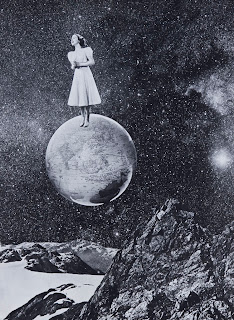When the party's through
Seems so very sad for you
Didn't do the things you meant to do
Now there's no time to start anew
Now the party's through.
When the day is done
Down to earth then sinks the sun
Along with everything that was lost and won
When the day is done...
12.30.2011
12.29.2011
love and death
© araki
“Sentimental Journey/Winter Journey”
Araki started the “Sentimental Journey/Winter Journey” series in 1971, when he married Yoko. It commences with their honeymoon which the photographer carefully documented, and ends with Yoko’s death in 1990.
We can see the newlyweds, Yoko in the intimacy of lovemaking, Yoko asleep in a boat, Yoko in all the aspects of her life. Her fetal position while sleeping in the boat almost seems to be a portent of her untimely death, the vessel symbolizing her journey to the afterlife.
In this series, Araki is crudely realistic. We can follow Yoko’s decline day by day, up to the last touch of her hand with Araki’s and, finally, her composed gaze as she lies in the coffin.
Travel, women, landscapes, sex and death are the main themes of this series.
12.27.2011
12.26.2011
12.23.2011
12.22.2011
12.20.2011
12.19.2011
12.16.2011
12.15.2011
© emma wilcox
The Two Times I Loved You the Most In A Car
It was your ideato park and watch the elephantsswaying among the treeslike royaltyat that make-believe safarinear Laguna.I didn't know anything that bigcould be so quiet.And once, you stoppedon a dark desert road,to show me the starsclimbing over each otherriotouslylike insects;like an orchestrathrashing its waythrough time itself.I never saw light that way again.
Dorothea Grossman
12.14.2011
12.13.2011
12.09.2011
12.08.2011
12.02.2011
© Scot
Sotherrn
About the next photograph:
Jeannie tells me she used to be real pretty. She says she was popular in school, glee club, honor roll. She says she grew up somewhere across America but now she’s here.
Jeannie says, “Guess I’m nothing new, huh?”Scot Sotherrn
© Scot
Sotherrn
‘When I pulled off the freeway into San Diego, I had a single twenty dollar bill in my wallet. My car, a 1973 Toyota station wagon, rattled my teeth and died in idle. At stops I had to divide my right foot: heel on the brake, toes revving the accelerator. I had barely enough gas to get back to Los Angeles.On El Cajon Boulevard I drove slowly and studied the street walkers. In their eyes I could see desperation-induced madness, premature death. In my eyes they could see my craving for the nasty little secret I kept from friends and family. I could give my twenty dollars to any one of these women. I could buy a quick sex fix and she could buy enough crack to put a smile on her face for an hour or so.In the passenger seat, belted and buckled, frail and beautiful, my four-year-old son, Dashiell, slept curled around his best friend, a pillow-sized stuffed facsimile of Hulk Hogan. It was Sunday night and my weekend with my little boy was over.When we arrived at his mother’s house, Dash awoke. He cried and clung tightly, arms around my neck. He didn’t want me to go. His mother Sylvia, my ex-wife, was happy to see me go, but first she wanted money. I made lame excuses. She called me a jerk and pried our son from my embrace. I took my twenty dollars and drove back to El Cajon Boulevard.’
From the Introduction of Low Life, Scot Sothern, 1986
Subscribe to:
Comments (Atom)



















